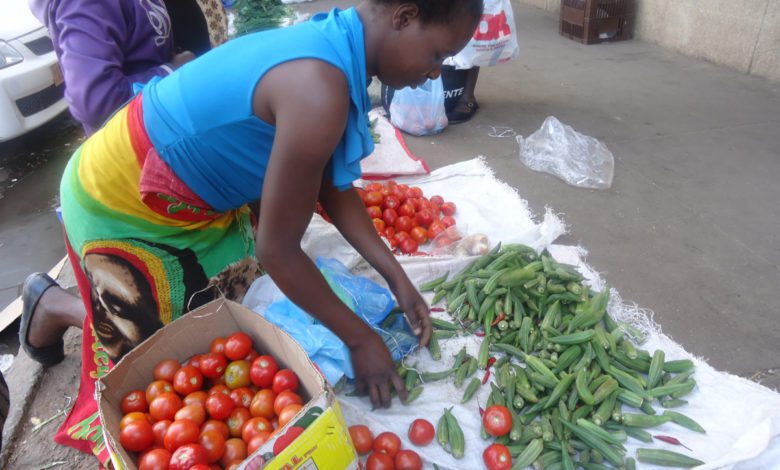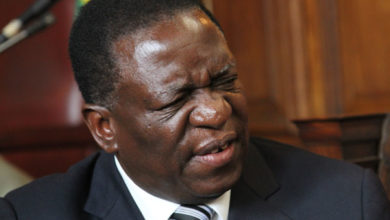
By Lizwe Sebatha
Once bitten, twice shy, so goes the saying.
For Bulawayo informal traders this statement aptly spotlights their dire situation after having been ‘taken for a ride’ by government in 2020 over the provision of Covid-19 relief funds.
Government had banned informal trading during the initial phase of the lockdown last year and destroyed vending stalls in most urban areas purportedly to discourage traders from operating.
Authorities claimed destroying vending stalls was a necessary campaign to clean and renovate workspaces occupied by informal traders before post-lockdown business.
Government had also promised a cushioning allowance, but thousands of informal traders did not receive it, leaving them facing hunger and starvation.
With no financial bailouts or provision of food parcels, it was only a matter of time before informal traders resumed business despite the constant threat of arrest and confiscation of their goods.
Fast forward to 2021; Vice President Constantino Chiwenga announced a Level 4 lockdown on January 5 banning informal trading accompanied by a 6pm-6am curfew as Covid-19 cases surged.
Incidentally, Chiwenga, also the Health and Child Care Minister, did not announce any bailout packages for informal traders.
“We were not surprised as they also failed us last year despite their promises,” said Priscilla Moyo, an informal trader who now operates from her backyard in Luveve high density suburb of Bulawayo.
With no government support, the will to survive under the lockdown has pushed Bulawayo informal traders to birth a novel e-vending platform to allow them to continue with their operations digitally without any fear of arrest and confiscation of their goods.
Operating under the aptly named Sizimele (We are on our own) banner, the platform connects producers, traders and retailers to operate digitally.
“We cannot repeat the same mistakes of 2020 when we waited in vain for government support,” said Bulawayo Vendors and informal Traders Association (BVTA) executive director Michael Ndiweni.
“This e-platform is meant to provide producers, who are producing food products for food markets to link up with retailers who are vendors who are retailing food products. So, it will connect these groups and other vendors who are not into buying and selling farm produce.
“It’s part of a market aggregation initiative that we are part of under the Sizimele consortium that is supported by the Zimbabwe Resilience Building Fund (ZRBF).”
The ZRBF is a long-term development initiative with an overall objective of contributing to increased capacity of communities to protect development gains in the face of recurrent shocks and stresses enabling them to contribute to the economic development of Zimbabwe.
According to the Zimbabwe Statistics Agency (ZimStats, 2020), while the lockdown may be a necessary evil, it represents a financial crisis for 76% of the economically active population who earn a living in the informal sector.
According to a survey by Afrobarometer, a non-partisan research network that provides data on African experiences and evaluations of democracy, governance and quality of life, most Zimbabweans feel the government was doing a poor job of addressing the needs of vendors in the face of Covid-19 induced lockdowns.
“Under Zimbabwe’s indefinite COVID-19 lockdown, informal traders and vendors and their families are highly vulnerable, unable to circulate to earn their living.
“The demolition of their stalls exacerbates an already-desperate situation, especially as memories of Operation Murambatsvina in 2005 inspire little confidence that the government will replace their informal workplaces with better alternatives,” the Afrobarometer survey reads in part.
“Considering the livelihoods and lives that hang in the balance, government must prioritise programs and policies that help these vulnerable groups survive the COVID-19 lockdown, provide a sustainable and regulated environment for post-lockdown work in the informal sector, and, for the longer term, begin creating jobs that offer stable opportunities for the future.”
Ndiweni said empty promises towards the welfare of informal traders taught them to “stand on their own’ hence birthing the e-vending platform.
“That platform is going to be uploaded on mobile phones like other applications that we see; someone will log in, sign up and enter their details and post their products, contact details, location and so forth,” Ndiweni said.
However, this does not mean informal traders have stopped engaging authorities, he added.
“We keep pressing with our advocacy initiatives as associations but also at the same time speaking out what we see as unfair the infringing on the economic rights of traders under these challenging conditions,” the BVTA executive director said.
“We think that the government must listen to what we are saying and try to adopt some of the suggestions that we are putting on the table. There is still more that we can still do together so that we have a holistic intervention when it comes to fighting the virus.”






